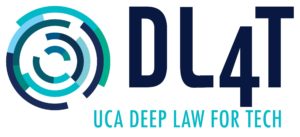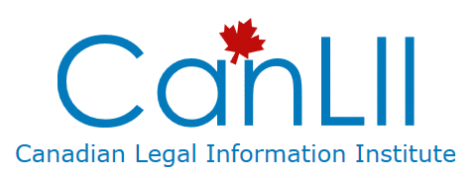Start – 2019 | End – 2024 Duration – 5 years
The use of algorithms for justice implies the collection of data that enhances the potential of these technologies without it being possible to predict with certainty the type of advancement that will be available tomorrow. Ethics is fundamental to this mechanism, insofar as the progress of these technologies must be carried out with respect for fundamental human rights, which requires the incorporation of benchmarks to ensure that these technologies are transparent and comply with the criteria of a democratic society.

Subproject chief
Jacquelyn Burkell
Research activities
Case studies
Working Group 13 will carry out two case studies of ethical issues raised by AI technologies in the justice system, drawing on the typology of AI applications (see Subproject 10) and the scoping review of issues from this subproject.
Inventories
The first inventory of the subproject will scope the ethical issues that come from the implementation of AI technologies in the justice system.
As a second inventory, the research activities will result in the creation of an annotated bibliography of literature on ethical issues related to AI technologies in the justice system.
Publications of researchers
- Jane BAILEY, Jacquelyn BURKELL, Suzie DUNN, Chandal GOSSE, et al. “AI and Technology-Facilitated Violence and Abuse”, in Florian MARTIN-BARITEAU, Teresa SCASSA (dir.), Artificial Intelligence and the Law in Canada, Toronto: LexisNexis Canada, (2021).
- Amy SALYZYN, "AI and Legal Ethics" in Florian MARTIN-BARITEAU, Teresa SCASSA (dir.), Artificial Intelligence and the Law in Canada, Toronto: LexisNexis Canada, (2021).
- Jacquelyn BURKELL, « The Challenges of Algorithmic Bias », document de travail, lectures du Barreau de l’Ontario, 2019. PDF
- Jena MCGILL, Amy SALYZYN "Judging by Numbers: How Will Judicial Analytics Impacte the Justice System and Its Stakeholders?", (July 15, 2020) No. 2020-13, Ottawa Faculty of Law Working Paper. PDF
- Ryad Titah, "Villes numériques : les technologies de l'information pour faire face aux grands défis urbains", LaPresse, (October 4, 2020).
- Jane BAILEY et Priscilla M. REGAN. « Big Data, Privacy and Education Applications », (2020) 29-1 Ed and LJ 55.
- Jane BAILEY et Jacquelyn A. BURKELL. « Equality at Stake: Connecting the Privacy/Vulnerability Cycle to the Debate about Publicly Accessible Online Court Records », (2018) 4-1 Canadian Journal of Comparative and Contemporary Law 67.
- Jacquelyn BURKELL, Priscilla M. REGAN, « Voter Preferences, Voter Manipulation, Voter Analytics: Policy Options for Less Surveillance and More Autonomy », (2019) No. 8-4, Internet Policy Review, DOI : 10.14763/2019.4.1438.
- Luisa DAMIANO, Paul DUMOUCHEL, « Anthropomorphism in Human–Robot Co-evolution », (2018) No. 9, Frontiers in Psychology, 468, DOI : 10.3389/fpsyg.2018.00468.
- Luisa DAMIANO, Paul G. DUMOUCHEL, « Emotions in Relation. Epistemological and Ethical Scaffolding for Mixed Human-Robot Social Ecologies », (2020) 13-37, HUMANA.MENTE Journal of Philosophical Studies, 181206.
- Primavera DE FILIPPI, Morshed MANNAN, Wessel REIJERS, « Blockchain as a Confidence Machine: The Problem of Trust & Challenges of Governance », (2020) No. 62, Technology in Society, 101284, DOI : 10.1016/j.techsoc.2020.101284.
- Paul DUMOUCHEL, « Intelligence, Artificial and Otherwise », (2019) No. 24-2, Forum Philosophicum, 241258, DOI : 10.35765/forphil.2019.2402.11.
- Chandell E. GOSSE, Jacquelyn BURKELL, « Politics and Porn: How News Media Characterizes Problems Presented by Deepfakes », (2020) No. 37-5, Critical Studies in Media Communication, 497-511, DOI : 10.1080/15295036.2020.1832697.
- Jenni Maria HAKKARAINEN, Riikka KOULU, Kalle Aleksi MARKKANEN, « Läpinäkyvät algoritmit ? Lähdekoodin julkisuus ja kontrolli hallinnon digitalisaatiossa », [« Transparent Algorithms? Source Code Publicity and Control in Administrative Digitalization »], (2020) Edilex.
- Mireille M. HILDEBRANDT, « Smart Technologies », (2020) No. 9-4, Internet Policy Review, pp. 1-16, DOI : 10.14763/2020.4.1531.
- Mireille M. HILDEBRANDT, « The Artificial Intelligence of European Union Law », (2020) No. 21-1, German Law Journal, 74-79, DOI : 10.1017/glj.2019.99.
- Riikka KOULU, « Crafting Digital Transparency: Implementing Legal Values into Algorithmic Design », (2021) No. 81, Critical Analysis of Law, 81-100.
- Riikka KOULU, « Proceduralising Control and Discretion: Human Oversight in Artificial Intelligence Policy », (2020) Maastricht Journal of European and Comparative Law, DOI: 10.1177/1023263X20978649.
- Riikka KOULU, « Human Control over Automation: EU Policy and AI Ethics », (2020) No. 1, European Journal of Legal Studies, 9.
- Liam MCCOY, Jacquelyn BURKELL, Dallas CARD, Brent DAVIS, Judy GICHOYA, Sophie LEPAGE, David MADRAS, « On Meaningful Human Control in High-Stakes Machine-Human Partnerships », (2019) UCLA: The Program on Understanding Law, Science, and Evidence (PULSE).
- Alexander DEKHTYAR, Jane HUFFMAN HAYES, Irit HADAR, Erin COMBS, Alessio FERRARI, Sarah GREGORY, Jennifer HORKOFF, Meira LEVY, Maleknaz NAYEBI, Barbara PAECH, Jared PAYNE, Matt PRIMROSE, Paola SPOLETINI, Shell CLARKE, Chuck BROPHY, Daniel AMYOT, Walid MAALEJ, Guenther RUHE, Jane CLELAND-HUANG et Didar ZOWGHI, « Requirements Engineering (RE) for Social Good: RE Cares [Requirements] », (2019) 36-1 IEEE Software 86‑94, DOI: 10.1109/MS.2018.2874327.
- Paul DUMOUCHEL, « Philosophy and the Politics of Moral Machines », (2019) 4-31-50 Journal of Artificial Intelligence Humanities Université Chung-Ang de Seoul.
- Wachara FUNGWACHARAKORN, Kanae TSUSHIMA et Ken SATOH, « Resolving Counterintuitive Consequences in Law Using Legal Debugging », Artificial Intelligence and Law, (forthcoming).
- Antoine GARAPON et Jean LASSÈGUE, « Concluding Remarks of the Seminar on Blockchain and Procedural Law », Stanford Journal of Blockchain Law and Policy (forthcoming).
- Iria GIUFFRIDA, « Liability Risk for Artificial Intelligence Predictive Decision-Making », (2019) 88 Fordham Law Review 439.
- Mireille HILDEBRANDT, « Privacy as Protection of the Incomputable Self: From Agnostic to Agonistic Machine Learning », (2019) 20-1 Theoretical Inquiries in Law.
- Vincent LARIVIÈRE and Jean-Philippe WARREN, « The Dissemination of National Knowledge in an Internationalized Scientific Community », (2019) 44 Canadian Journal of Sociology 18, DOI: 10.29173/cjs29548.
- Jean LASSÈGUE, « Ambivalence du calculable et crise du jugement », (2019) 82 Archives de Philosophie 255, DOI: 10.3917/aphi.822.0255.
- Jean LASSÈGUE, « L’Intelligence artificielle, technologie de la vision numérique du monde », (2019) 2 Les Cahiers de la Justice 205, DOI: 10.3917/cdlj.1902.0205.
Presentations
Partners

Academic partner |
Academic partner |
Industrial partner |
|
Professional partner |
Academic partner |
institutional partner |
|
institutional partner |
|
This content has been updated on 22 July 2024 at 15 h 06 min.




